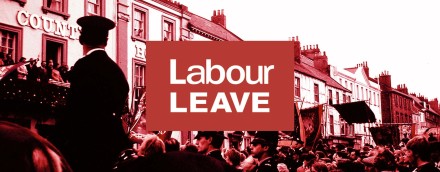
Alongside attempts to have Labour commit to a customs union, there is a push to have the party back a second referendum: a proposal that would obviously incentivise the EU to offer the worst possible deal (in the hope that the UK would reject it and simply stay in the EU). And the most persistent of these kind of arguments is that the UK should stay in the single market whilst formally leaving the EU, often referred to as ‘Brexit in name only’ or, more pointedly, ‘becoming a vassal state’. Labour Leave’s latest paper explores why the key arguments for such an approach do not stand up to scrutiny.
As a point of democratic principle, the ‘worst of all worlds’ situation whereby the UK becomes a mere rule-taker goes against the main reason we voted to leave the EU – sovereignty. Such a ‘vassal state’ situation, derided by both Leavers and Remainers, can hardly be regarded as respecting the result of the referendum in any meaningful sense if it becomes permanent.
Retaining membership of the single market also means any new system of reasonable control on immigration simply can’t be developed. The British public have shown themselves to be amongst the most welcoming and tolerant in Europe, but they want the extent and speed of inward migration managed at the UK level. Policies that are entirely consistent with Labour values but differ in the slightest degree from completely free movement will not be available to us if we remain members of the single market. Again, this is hardly consistent with respecting the referendum result.
We look into the supposed dire prospects for the UK economy should we depart the EU’s single market. It is abundantly clear that much of the case for ensuing economic disaster simply doesn’t stack up. Neither entry to the EEC in 1973 nor the creation of the single market in 1992 saw any discernible increase in GDP for the UK as a consequence. Furthermore, the doom-laden predictions of George Osborne’s ‘Project Fear’ have come to nothing, yet the Treasury’s recent scare stories still feature much of the same flawed – at times, preposterous – methodology. Labour supporters would be better placed to look at the report commissioned by the Labour mayor of London for a more balanced and sober assessment of the different post-Brexit scenarios, as assessed by our paper.
Labour must develop a credible anti-austerity policy centred on improving productivity and rebalancing the economy. Retaining single market membership simply amounts to more of the very thing that the electorate, and Labour’s traditional heartland voters, have already rejected. Our paper goes into some detail on our balance of trade. If we want to see real GDP growth per capita, we simply cannot be so fixated on our exports to the EU – a bloc with which we have an enormous trade deficit and that already accounts for less than half our international trade. The vast majority of British businesses are SMEs and when polled they favour leaving both the single market and the customs union. Labour would do well to focus on why this is, as our paper sets out.
Whilst we do not cover at length current wrangles over our future customs relationship with our European partners, it is a little known fact that an official EU policy paper, carried out by former director of World Customs Organization Lars Karlsson, proposes precisely the kind of solutions that a ‘max fac’ approach would entail. The recent overestimate of the cost of such a model is roundly debunked in a report co-written by Labour Leave founder and global industrialist John Mills.
Ultimately attempts to reverse the referendum result by staying a member of the EU single market will backfire both economically and politically – especially in the core aim of our movement, which is to represent and empower working-class voters.
Ed Rennie is a policy analyst who writes for Labour Leave.




More from LabourList
‘I spent years telling workers the law couldn’t help them – that has changed’
Josh Simons resigns as Cabinet Office minister amid investigation
‘After years of cuts, Labour’s local government settlement begins to put things right’